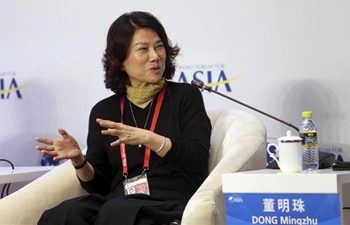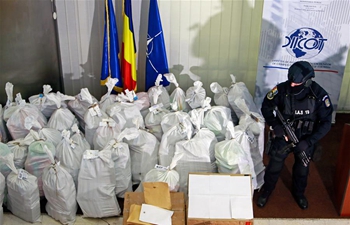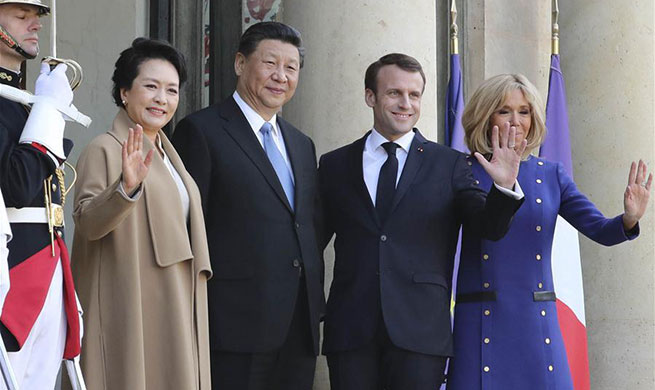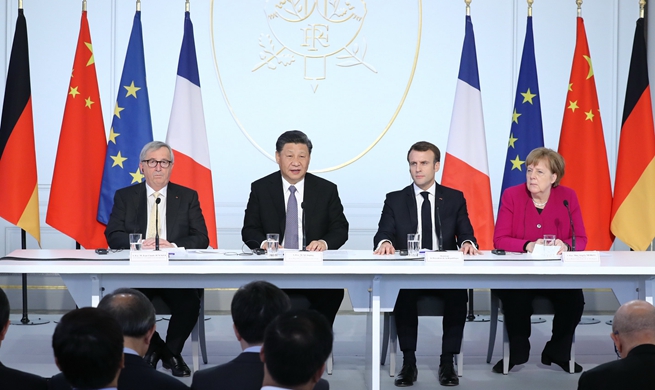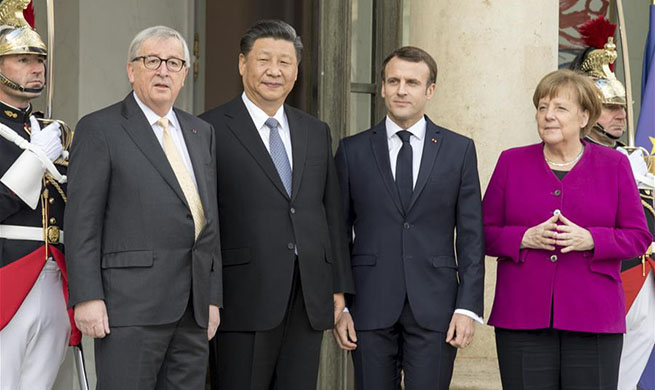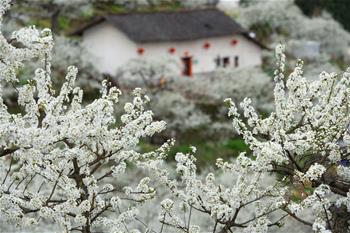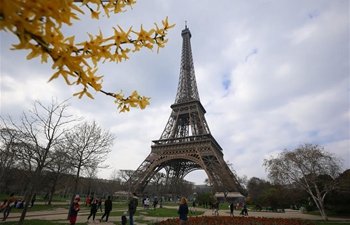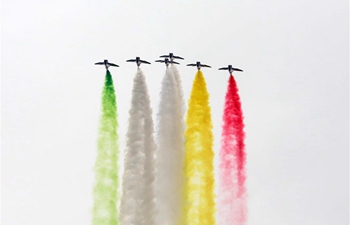HANOI, March 27 (Xinhua) -- Vietnam has banned the import of glyphosate-containing herbicides after a U.S. court ruled that a weed killer, produced and sold by U.S. agrochemical giant Monsanto, could cause cancer, local media reported on Wednesday.
Vietnam's Plant Protection Department has urged businesses to stop signing new import contracts for glyphosate-based herbicides, but products already in circulation in the country are not affected by this decision, online newspaper VnExpress reported.
"As soon as we heard the second U.S. trial's verdict that glyphosate is related to cancer, we have issued a document to ban new herbicide imports containing the active ingredient. The removal of this substance from the list of usable herbicides in Vietnam will also be issued in the near future," daily newspaper Tuoi Tre (Youth) quoted the department's head Hoang Trung as saying.
The department also asked businesses, organizations and individuals to report back on the production, sales and storage of glyphosate-based herbicides.
In Vietnam, glyphosate-based herbicides are also widely used, said Trung. The country uses about 30,000 tons of the chemical every year, in which 60 percent are from herbicides. It is not clear what the remaining 40 percent of the chemical is used for.
This is not the first time Monsanto has been accused of making products with adverse effects on human health. Vietnam has repeatedly asked Monsanto and other U.S. firms to compensate Vietnamese victims affected by Agent Orange (AO), a toxic defoliant containing the gene-altering dioxin, sprayed during the Vietnam War.
Statistics released by the Vietnam Association of Victims of AO/Dioxin show that there are still more than three million Vietnamese people affected by AO/dioxin, Vietnam News Agency reported.
During the 1961-1971 period, some 80 million liters of herbicides were sprayed onto 2.63 million hectares of land in southern Vietnam, 60 percent of which were AO/dioxin, according to the country's Ministry of Defense.
